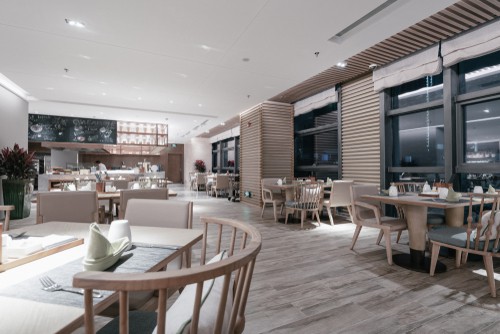
Aircon Maintenance for Singapore Restaurants. In the bustling culinary landscape of Singapore, where delectable dishes tantalize the taste buds, another element plays a crucial role in ensuring a delightful dining experience – air conditioning.
Singapore’s tropical climate can be unforgiving, making a cool and comfortable dining environment essential.
This comprehensive guide will explore the significance of air conditioning in Singaporean restaurants and the maintenance practices that keep it running smoothly.
Introduction
When diners enter a restaurant, they often take the ambiance for granted. However, the controlled temperature and air quality provided by air conditioning are pivotal in creating a pleasant atmosphere.
When you walk into a restaurant, you’re greeted by a refreshing blast of cool air that sets the stage for an enjoyable meal.
This simple yet critical element of dining comfort often goes unnoticed, but its importance cannot be overstated.
The Crucial Role of Air Conditioning in Restaurants
Singapore’s tropical climate is notorious for its heat and humidity. Dining in sweltering conditions can be uncomfortable and deter customers from returning.
Air conditioning provides a sanctuary from the heat, creating an inviting and comfortable dining environment.
A well-maintained air conditioning system ensures customers enjoy their meals without distractions, increasing customer satisfaction and loyalty.
Regular Maintenance as a Priority
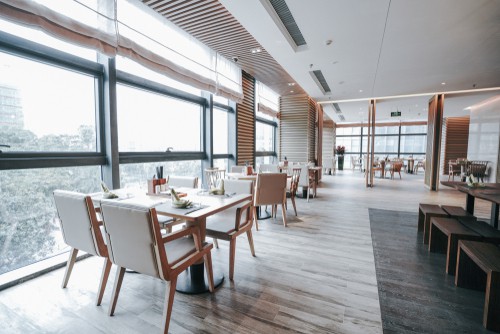
Importance of Routine Inspections
Regular aircon maintenance is the lifeline of any air conditioning system, especially in the demanding conditions of a restaurant.
Routine inspections must identify and address potential issues before they escalate into costly breakdowns.
Preventive measures not only prolong the lifespan of the equipment but also save on long-term operational costs.
Scheduling Maintenance Checks
Scheduling maintenance checks at regular intervals is a proactive approach to keeping your air conditioning system in optimal condition.
Working with professional service providers who can create a maintenance schedule tailored to your restaurant’s needs is advisable.
Cleaning and Sanitization
Cleaning Air Filters
Clean air filters are the first line of defense in maintaining air quality and efficiency.
Regularly cleaning and replacing air filters ensure that the air circulating in your restaurant is fresh and free from contaminants. Aim for a cleaning frequency that aligns with your serving volume.
Cleaning Evaporator and Condenser Coils
The coils in your air conditioning system are crucial in cooling efficiency.
Over time, these coils can accumulate dust and dirt, reducing their effectiveness. Regular cleaning is essential to maintain peak performance.
Duct Cleaning
Ducts are responsible for distributing conditioned air throughout your restaurant.
Dirty ducts can lead to poor air quality and health concerns. Regular duct cleaning ensures that your customers’ air is clean and healthy.
Temperature and Humidity Control
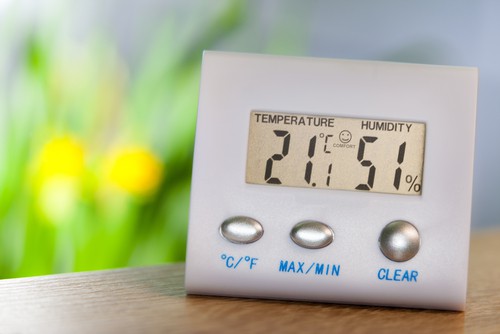
Optimal Temperature Settings
Maintaining the ideal temperature for customer comfort is paramount. Set your thermostat to create a pleasant dining environment. Ensure that your system can handle the demands of a full restaurant, even during peak hours.
Humidity Control
Singapore’s humidity can be stifling. Proper humidity control prevents discomfort and ensures a cozy dining experience. Adjust your system to maintain the right balance between temperature and humidity.
Ventilation and Air Quality
Proper ventilation is crucial to ensure that the air in your restaurant remains fresh and free from odors. Air purification systems can enhance air quality, making the dining experience more enjoyable.
Energy Efficiency Measures
Energy-Efficient Systems
Investing in energy-efficient air conditioning systems reduces your carbon footprint and lowers operating costs. These systems are designed to provide optimal cooling while consuming less energy.
Smart Thermostats and Automation
Smart technology can optimize energy consumption by adjusting settings based on occupancy and external factors. Embracing automation can lead to significant energy savings.
Preventing Emergency Breakdowns
Air conditioning breakdowns can disrupt restaurant operations and lead to customer dissatisfaction.
It’s essential to emphasize the negative impact of such breakdowns and prioritize identifying and addressing issues before they escalate.
Noise Control
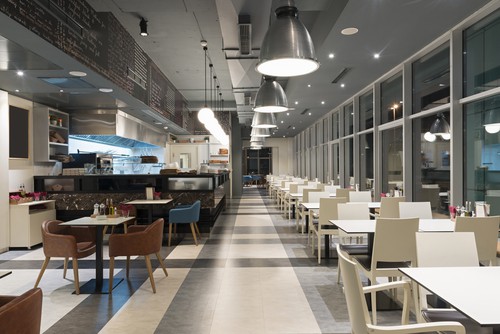
Excessive noise from air conditioning units can disrupt the dining experience. Implement noise reduction measures to ensure your customers can enjoy their meals peacefully.
Staff Training and Awareness
Well-trained staff play a pivotal role in using the air conditioning system effectively. Training your restaurant team on system operation and maintenance protocols is essential to ensure the comfort of your customers.
FAQs
Q: How often should I clean my restaurant’s air filters?
A: The cleaning frequency of air filters depends on the volume of diners you serve. In high-traffic restaurants, cleaning or replacing air filters more frequently is advisable, typically every 1 to 2 months.
Q: What are the benefits of energy-efficient air conditioning systems?
A: Energy-efficient systems consume less electricity, reducing operational costs and environmental impact while maintaining optimal cooling performance.
Q: How can I minimize noise from air conditioning units in my restaurant?
A: To minimize noise, ensure that the air conditioning system is properly installed and maintained. Additionally, consider noise-reduction measures such as acoustic insulation and quieter unit models.
Q: Is compliance with health and safety regulations essential for my restaurant’s air conditioning system?
A: Yes, compliance is crucial. It ensures that the air in your restaurant is clean and safe to breathe, safeguarding the health of your customers and staff while meeting legal requirements.
Q: What is the ideal balance between temperature and humidity in a restaurant?
A: The ideal balance varies, but generally, a temperature range of 23-26°C (73-78°F) with humidity around 50-60% is comfortable for most diners.
Remember that ensuring a comfortable dining environment through proper air conditioning maintenance not only enhances customer satisfaction but also contributes to the overall success of your restaurant in Singapore’s competitive culinary scene.
Aircon Maintenance for Singapore Restaurants – Conclusion
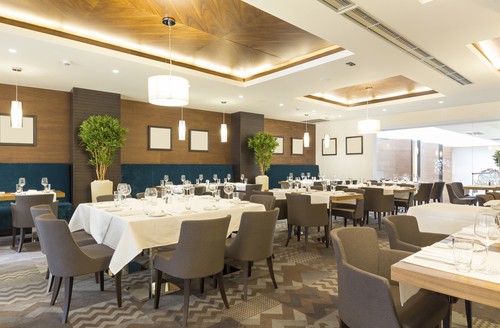
In conclusion, air conditioning is the unsung hero of Singaporean restaurants, providing a comfortable dining environment in the face of the tropical climate’s challenges.
Regular maintenance, cleaning, temperature control, ventilation, energy efficiency, and staff training ensure a delightful dining experience.
Restaurant owners and managers can enhance customer satisfaction and loyalty by prioritizing aircon maintenance.
Your customers deserve a comfortable dining experience; a well-maintained air conditioning system is key.
Are you seeking professional aircon maintenance services in Singapore? Contact us today!
